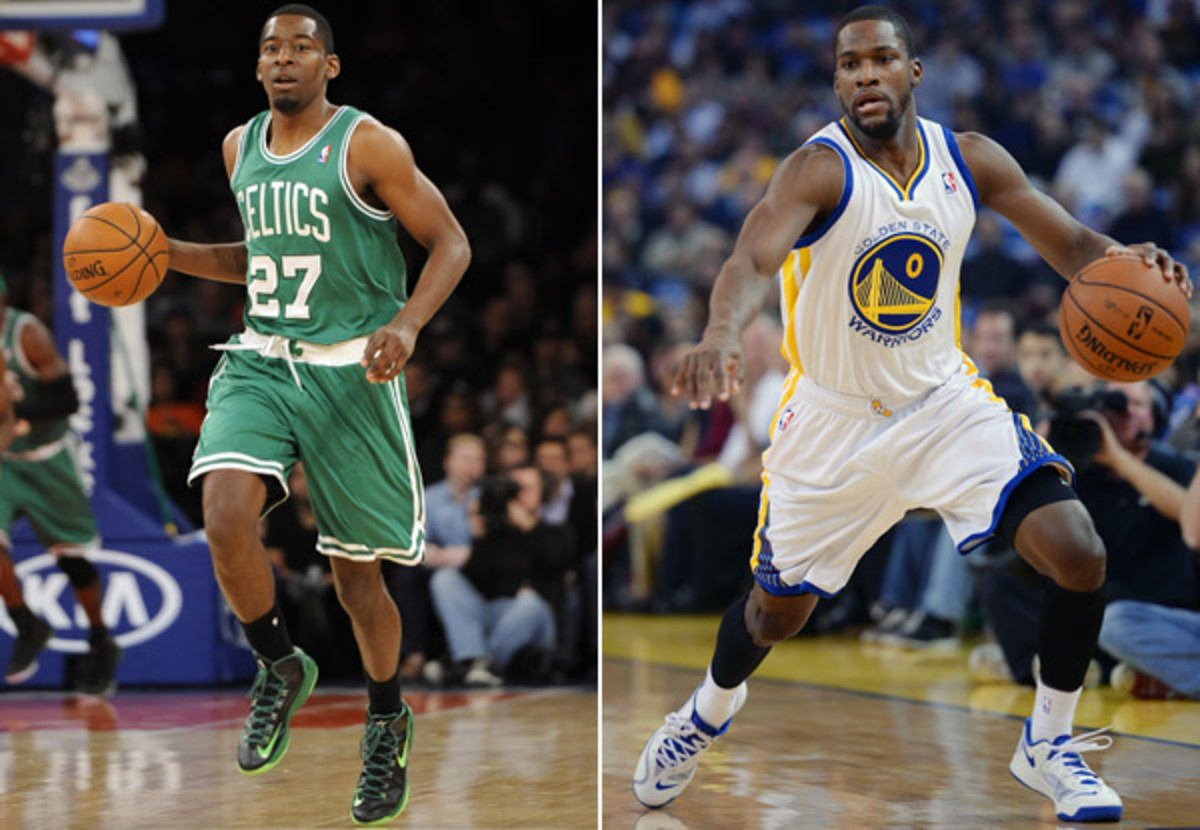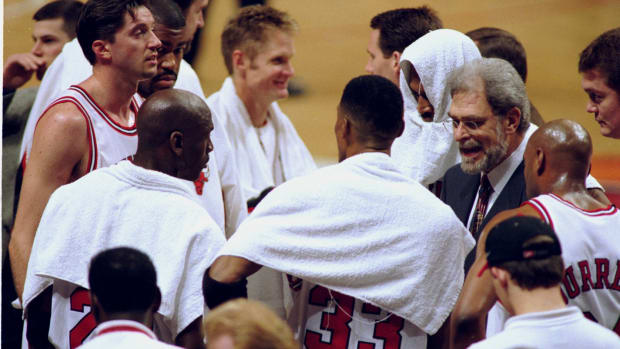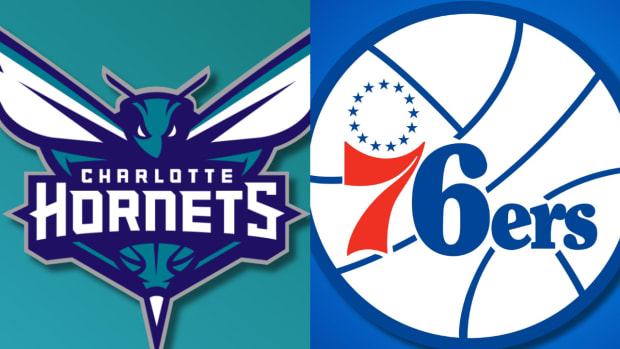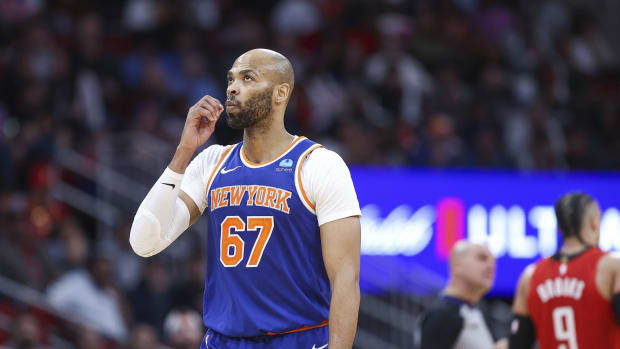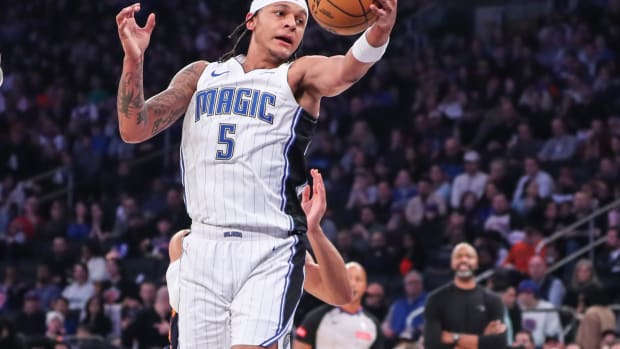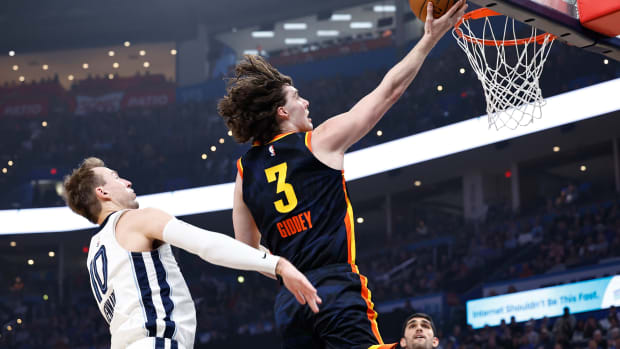Trade grades: Jordan Crawford and Toney Douglas move in three-team deal
Jordan Crawford (left) will take the place of Toney Douglas on the Warriors' bench. (AP/Getty Images)
The Warriors, Celtics, and Heat have reportedly agreed to a three-team trade that will send guards Jordan Crawford and MarShon Brooks to Golden State, guard Toney Douglas to Miami and center Joel Anthony to Boston. Here's how the swap shook out for all the teams involved.
Golden State Warriors -- Grade: B-minus
Incoming: Jordan Crawford, MarShon Brooks
Outgoing: Toney Douglas
The Warriors have worn their roster needs on their sleeve in recent weeks, particularly in pursuing prospective deals for Nuggets guard Andre Miller and Bulls guard Kirk Hinrich. Acquiring Crawford scratches the same itch, albeit with a rake; for all of Crawford's growth as a ball handler and distributor in Boston this season, to this point he's still been a low-percentage shooter valued for his ability to manufacture make-do offense.
For a team as strapped for scoring as the Celtics, that approach worked. Coach Brad Stevens more or less needed Crawford to force shots because so few other Celtics were suited to create under duress. The same could be true of the minutes that Crawford will come to play with Golden State's underwhelming reserves, and it's for that reason that he could well work out as a Warrior. This deal could pay off handsomely in the moments when the Warriors could use a player like Crawford to press the issue offensively, notably when Stephen Curry and/or Andre Iguodala are off the floor.
GOLLIVER: All-Payday Team: Five players set to cash in this summer
What remains to be seen is whether Crawford can maintain some modicum of restraint while playing in an enabling, free-flowing offense. Warriors coach Mark Jackson tends to give his shot creators plenty of room to operate, which with a player like Crawford could work to his detriment. It's one thing for Crawford to bail out a stagnant possession with a tough jumper, but another entirely for him to bypass better scoring options (the likes of which he didn't really have as a Celtic) for the sake of getting his. That acclimation could make Crawford's minutes for the Warriors a difficult balance at times, but overall he's still equipped to help the second unit in ways that Douglas was not.
If things work out between Crawford and the Warriors, he could return for next season through restricted free agency -- a process that will give Golden State the ability to match any offer. Brooks, on the other hand, figures to be gone in a few months. Though there are some attractive elements of Brooks' versatile scoring game, his other limitations (including his awkward fit in a team offense) will likely bring a quick end to his time in the Bay Area.
Boston Celtics – Grade: B-plus
Incoming: Joel Anthony, protected 2014 first-round pick (from Miami via Philadelphia), 2016 second-round pick (from Miami), cash considerations
Outgoing: Crawford, Brooks
Boston managed to flip two short-term assets for a potential trio of future picks. The lottery-protected first-round pick, which Miami obtained from Philadelphia in 2012, becomes two second-round picks if the 76ers -- who are 12-25 this season and in the midst of rebuilding with young players -- miss the playoffs this season and next season. The Celtics' return, then, from Wednesday's trade could very well be three second-round selections. That might not seem like a haul, but in a market where draft picks of any kind are increasingly difficult to acquire, it does the Celtics good to stock up.
That's especially true when the cost to acquire such picks is so low. Anthony's salary for this season is only marginally higher than the combined take of Crawford and Brooks, meaning that the primary financial cost for the Celtics (offset by the cash considerations involved in the deal) will come next season. Even then, it's not as if Boston is in some rush to maximize its cap space. This is a team that's still in the process of clearing salary fodder, meaning that a one-year hit for $3.8 million (provided Anthony accepts his no-brainer player option) isn't much of a concern.
Crawford was a useful placeholder for Boston, but little more. His value lied in doing that which other Celtics couldn't: handling the ball, creating shots and running an offense with confidence. He's not effective enough in any of those areas to be considered an especially interesting building block, and with Rajon Rondo's impending return and the acquisition of Jerryd Bayless, Crawford's use to the current Celtics dwindled. Therein came the motivation for moving him while his value was still relatively high, and the means to acquire a few more picks for Danny Ainge's war chest.
For those counting at home, Boston is owed four first-round picks (three from the Nets, one from the Clippers), the right to swap first-rounders with the Nets in 2017 and three second-round picks (assuming the above scenario) through 2018*. With the Celtics' own first-rounders all still in play, that's not a bad place to start a potential rebuild.
*There are also two other second-round picks in play from Sacramento, but both are so heavily protected that they won't likely convey anything at all to Boston.
Miami Heat – Grade: B-minus
Incoming: Douglas
Outgoing: Anthony, protected 2014 first-round pick (originally from Philadelphia), 2016 second-round pick
Anthony's salary came at a much higher cost to the tax-paying Heat than it will to the rebooting Celtics. In parting with the little-used center and adding Douglas, Miami stands to save more than $5 million in luxury-tax payments this season. Account for the prorated difference in salary this season and the tax implications for next (when Miami will likely be paying the repeater tax), and the Heat's savings in this transaction become rather considerable. That money could go toward keeping the current core intact or even making a play for an addition like Andrew Bynum, but what matters most is that the Heat are finding ways to trim salary and save on the tax as to better spend on the players who matter most. Sorry, Joel.
The icing on the cake: Miami swapped a center who had played 37 minutes all season for a potentially better player on an expiring contract. It took a few picks to get to that point, but none so valuable as to make this a bad deal.
Salary data courtesy of Sham Sports.






























